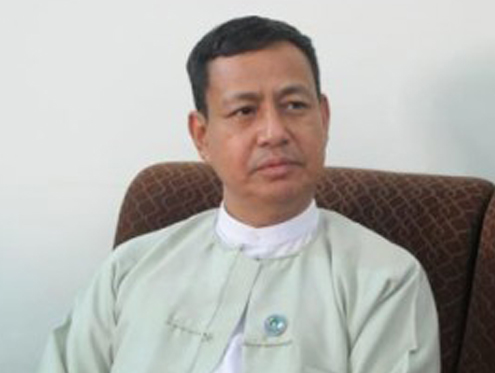As a delegation from the Ministry of Information tours Scandinavia to study public broadcasting, Ye Htut, Director General of the Information and Public Relations Department at the Ministry of Information, talked with DVB about Burma’s evolving media landscape
So what kind of reforms/changes are you seeing in Burma [concerning the media]?
The first priority in our minister’s guidelines regarding the changes is to transform the state media sector from a government mouthpiece into a platform for the people where they can express their concerns and opinions about issues that are relevant to them. We were directed to implement these changes by both our superiors and the president.
Also, our minister directed us to follow up with this so we are considering transforming state media outlets into public service broadcasters and this is why we are here in the Scandinavia now studying how they are doing it.
Why is the delegation from the Ministry of Information visiting Scandinavia and not the US or UK?
We did some research on public service broadcasting and found that the US doesn’t have something like it. The UK has BBC, but it has rather a very big structure with all the foreign broadcasting services and different language programmes, while Scandinavians have services more exclusively dedicated for the people in their own countries and also they have been working with PSBs for quite a long time already. So we tried to come here to learn – we made contact with DVB and Radio Sweden and then came here with their assistance.
In your joint-statement with DVB, you mentioned looking into media law, financing, licensing, media ethics, press councils and journalists’ associations during your trip. What is the first thing you will look into when you land in Europe?
Today, we are touring Radio Sweden and observing how they work – some of the things they are doing are very good but we see that it would be difficult to apply some of them straight away back home. For example, these services are being funded by the people’s taxes – we will have to take slow and gradual steps instead of applying them straightaway.
Do you think that this tour, which is being led by the deputy minister of information who is being accompanied by many department directors, will have a lot of effect on the media landscape inside Burma?
There will be a lot of effects – sector by sector. Firstly, this will become very useful when we begin to transform state media outlets, and also studying press councils here will help us be able to provide suggestions and facts when we form the country’s future press council. Moreover, I believe our trip here now will have a lot of impact when we draft the new broadcasting law.
In the past, state newspapers used to publish demeaning slogans aimed at foreign media outlets, including BBC, VOA, DVB and RFA. And now you are in Scandinavia, after being invited by DVB. Is this spontaneous or were you pressured?
Our president, during his inauguration speech, said we all have a wish to see development and prosperity in our country and that we should find mutual ground to work together for mutual benefits. We hope to have free and transparent media outlets that can truly provide information to the people.
We also want to bring media freedom to the country in accordance with the country’s constitution. Burmese media organisations abroad such as DVB and the BBC have been working for this same goal as well. So although we might still have some different points of view on certain things, we are working together to create a free and transparent media landscape. Mainly, we are doing this in line with the president’s national reconciliation plan not because of any kind of pressure.
Is there anything else you would like to add?
We are going through a process of reforms in our country. It’s going to take a lot of effort and there will be a lot of challenges to overcome. However, we would like the public to know that all of our government departments, under the president’s leadership, are doing there best to bring about change. We would also like people to give us suggestions on what they think should be done, via the Ministry of Information’s website.



